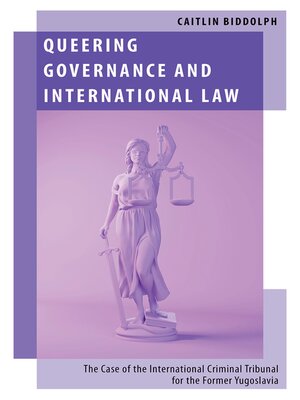Queering Governance and International Law
ebook ∣ The Case of the International Criminal Tribunal for the Former Yugoslavia · Oxford Studies in Gender and International Relations
By Caitlin Biddolph

Sign up to save your library
With an OverDrive account, you can save your favorite libraries for at-a-glance information about availability. Find out more about OverDrive accounts.
Find this title in Libby, the library reading app by OverDrive.



Search for a digital library with this title
Title found at these libraries:
| Library Name | Distance |
|---|---|
| Loading... |
International law is brought into existence by actors from a variety of perspectives—international lawyers, state representatives, bureaucrats, and organizations—and as such, international law is riddled with contradictions. It is violent and violating, reducing complex lives and histories to "good" (lawful) and "bad" (criminal) bodies subject to protection, praise, or punishment. And yet it has potential to be a means of hope, resistance, and justice for victims, survivors, and oppressed communities. In Queering Governance and International Law, Caitlin Biddolph examines the international legal space through queer, feminist, and postcolonial lenses. In doing so, she queers governance and international law, exposing the gendered and sexualized meanings behind legal concepts like violence, and critiquing legal status quos so that more transformative, liberatory, and queerer paths to justice might be dreamt and manifested within and beyond international law. Using as a case study the International Criminal Tribunal for the former Yugoslavia (ICTY), Biddolph traces the cis-heteronormative underpinnings of legal violence, and identifies ways that violence can be resisted and international law subverted to dismantle the very gendered and racial hierarchies it has reinforced.







